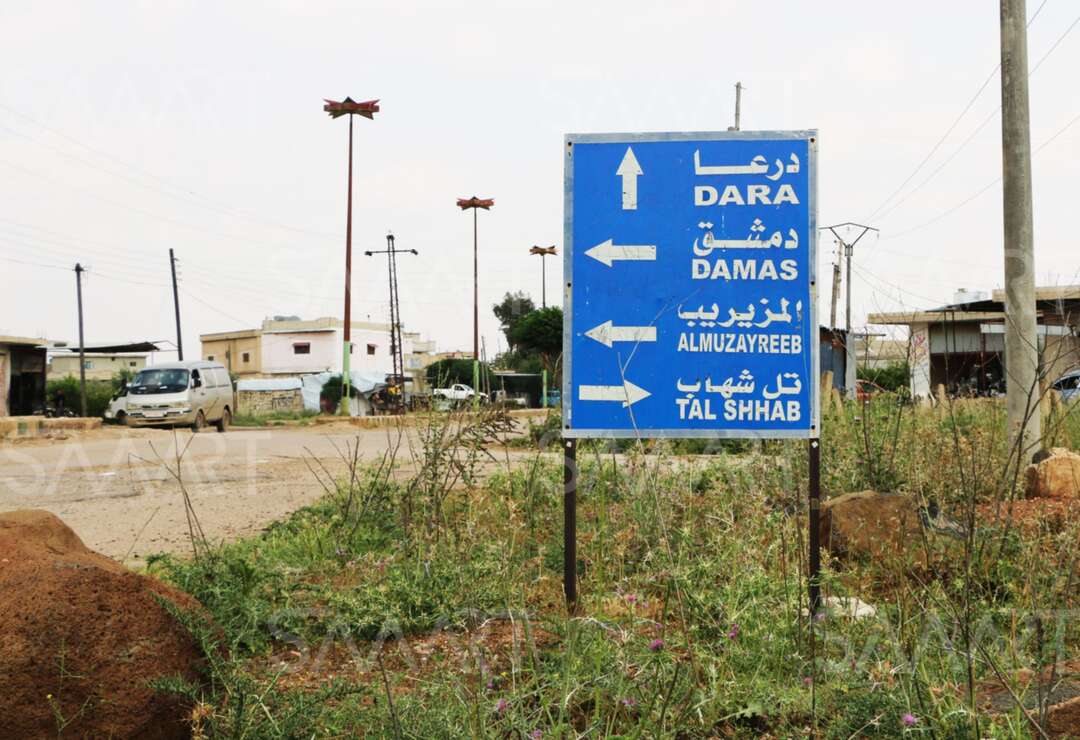-
Lebanese banks letting workers go amid collapse of local currency

The Arab News reported that Lebanese banks are quietly letting employees go as they seek to close branches and reduce operational costs amid the collapse of the local currency, the Lebanese pound.
It comes after the country’s central bank tightened regulations against commercial banks.
While some are downsizing domestically, other banks are opting to sell assets abroad.
The number of branches estimated to have closed ranges between 300 and 400 out of a total 1,100. Employees and contractors have been the first to feel the effects of the decisions.
George Al-Hajj, president of the Federation of Syndicates of Bank Employees, said that 2021 has been “very hard” for bank employees in Lebanon, adding: “Although no statistics have been conducted to show the exact number of laid-off employees, their number does not exceed 4,500.”
But more bank workers are expected to be dismissed in the near future.

Al-Hajj said: “We are in the middle of the storm, and the crisis will persist until Lebanon reaches an agreement with the International Monetary Fund on the restructuring process of the banking sector."
Read more: Iraq’s PM assassination attempt carried out with Iranian-made drones
The number of employees of the banking sector in 2018 was estimated to be about 26,000, working for 61 banks. Since 2019, the sector has lost more than 17 percent of its workforce.
Dr. Jassem Ajaka, an economic and strategic expert, warned that “up to 50 percent of bank employees will be laid off.”
He told Arab News: “After the deterioration of the economic situation and the suspension of banking activities due to the decision to block financial transfers, the banking sector is no longer making profits.
“Banks are not charities, and the reality is hard for everyone.”
“The banking sector’s employees constitute a very important share of the middle class in Lebanon and eradicating this group from the economy will further harm Lebanese society.”
Al-Hajj said: “In 2019, the federation saw this crisis coming and urged banks seeking to fire employees to inform the Ministry of Labor of their intentions. Some banks did, but others did not, and thus we do not know the exact number of laid-off employees.”
He added: “The banks’ excuses for mass lay-offs were many: Sometimes it was because the bank was applying an early retirement system, sometimes it was a resignation at a request from the administration, and other times it was the termination of contracts due to economic reasons.”
Read more: Lebanon stresses solidarity with Saudi Arabia facing any attack on its sovereignty
Many commercial banks are also offering a set of incentives for employees to voluntarily quit.
The average salary of a regular bank employee ranges between 2,000,000 and 2,500,000 Lebanese pounds — equivalent to $100 today but $1,500 before the economic crisis and collapse of the currency.
This year, the Lebanese Federation of Syndicates of Bank Employees issued new protocols on the financial rights of laid-off employees, but Al-Hajj warned that “banks have not been very receptive so far.”
The new rules state that “laid-off employees shall receive 18 monthly salaries as well as a bonus of two months’ salary for every year of employment up until six years; a one-and-a-half-month salary for every year of employment for those who served between six and 12 years; and a one-month salary for every year of employment for those who served more than 12 years and up until 44 years of employment.”
The previous dismissal protocol meant that laid-off employees only received 16 months’ salary in compensation for arbitrary dismissal.
However, some banks have chosen to compensate their employees with 24 months of salary in addition to other incentives, in order to avoid clashes with laid-off staff.
Al-Hajj said: “In addition to the mass layoffs, another problem that is as serious as the first one has emerged: The devaluation of employee salaries and its tragic repercussions on the living conditions of the Lebanese.
“This problem is only getting worse as the crisis continues and thus, the number of voluntary resignations by highly qualified employees is increasing.
“This will affect the future of the banking sector. Unfortunately, the migration of these people cannot be prevented unless by reconsidering their salaries, which have become worthless.”
Bechara Al-Asmar, head of the General Labor Union, estimated that the number of laid-off employees in Lebanon “since the economic crisis and the beginning of the coronavirus pandemic numbers more than 500,000 people.”
Read more: Barack Obama urges young people to ‘stay angry’ in fight against climate change
The Lebanese Observatory for Workers and Employees Rights has also said that between 500,000 and 800,000 workers have lost their jobs, forcing the country’s unemployment rate to surge above 50 percent.
It said that of the public sector, military and security employees who have kept their jobs, most have lost about 90 percent of the value of their salaries.
The observatory said that “325 institutions submitted requests to the Ministry of Labor to dismiss employees at the start of 2020.”
It noted the first wave of mass layoffs mainly targeted workers in the tourism sector. The crisis then extended to small enterprises and the country’s sizable black market.
“The second wave hit the education sector, where more than 2,000 teachers were laid off in 2020, according to the Teachers Syndicate in Private Schools, and their salaries were cut by 40 percent as many students left private education and were enrolled in public schools.”
The observatory said that the mass layoffs also affected “major businesses and institutions that were supposedly solid enough to bear the effects of the crisis, such as the American University of Beirut, which fired more than 1,200 workers, The Coca-Cola Company, which fired 350, and Adidas, which fired 250.”
The observatory added, the multinational retail franchise operator Al-Shaya Group also shut most of its companies in Lebanon and fired employees.
The layoffs also affected “domestic workers and non-Lebanese workers from Asia and Africa, as employers were no longer able to pay them in US dollars.
The observatory added, vulnerable groups were also affected, such as daily laborers and Palestinian refugees, whose numbers are hard to estimate as they are not registered within the social security fund or at the Ministry of Labor."
Source: arabnews
You May Also Like
Popular Posts
Caricature
BENEFIT AGM approves 10%...
- March 27, 2025
BENEFIT, the Kingdom’s innovator and leading company in Fintech and electronic financial transactions service, held its Annual General Meeting (AGM) at the company’s headquarters in the Seef District.
During the meeting, shareholders approved all items listed on the agenda, including the ratification of the minutes of the previous AGM held on 26 March 2024. The session reviewed and approved the Board’s Annual Report on the company’s activities and financial performance for the fiscal year ended 31 December 2024, and the shareholders expressed their satisfaction with the company’s operational and financial results during the reporting period.
The meeting also reviewed the Independent External Auditor’s Report on the company’s consolidated financial statements for the year ended 31 December 2024. Subsequently, the shareholders approved the audited financial statements for the fiscal year. Based on the Board’s recommendation, the shareholders approved the distribution of a cash dividend equivalent to 10% of the paid-up share capital.
Furthermore, the shareholders endorsed the allocation of a total amount of BD 172,500 as remuneration to the members of the Board for the year ended 31 December 2024, subject to prior clearance by related authorities.
The extension of the current composition of the Board was approved, which includes ten members and one CBB observer, for a further six-month term, expiring in September 2025, pending no objection from the CBB.
The meeting reviewed and approved the Corporate Governance Report for 2024, which affirmed the company’s full compliance with the corporate governance directives issued by the CBB and other applicable regulatory frameworks. The AGM absolved the Board Members of liability for any of their actions during the year ending on 31st December 2024, in accordance with the Commercial Companies Law.
In alignment with regulatory requirements, the session approved the reappointment of Ernst & Young (EY) as the company’s External Auditors for the fiscal year 2025, covering both the parent company and its subsidiaries—Sinnad and Bahrain FinTech Bay. The Board was authorised to determine the external auditors’ professional fees, subject to approval from the CBB, and the meeting concluded with a discussion of any additional issues as per Article (207) of the Commercial Companies Law.
Speaking on the company’s performance, Mr. Mohamed Al Bastaki, Chairman BENEFIT , stated: “In terms of the financial results for 2024, I am pleased to say that the year gone by has also been proved to be a success in delivering tangible results. Growth rate for 2024 was 19 per cent. Revenue for the year was BD 17 M (US$ 45.3 Million) and net profit was 2 Million ($ 5.3 Million).
Mr. Al Bastaki also announced that the Board had formally adopted a new three-year strategic roadmap to commence in 2025. The strategy encompasses a phased international expansion, optimisation of internal operations, enhanced revenue diversification, long-term sustainability initiatives, and the advancement of innovation and digital transformation initiatives across all service lines.
“I extend my sincere appreciation to the CBB for its continued support of BENEFIT and its pivotal role in fostering a stable and progressive regulatory environment for the Kingdom’s banking and financial sector—an environment that has significantly reinforced Bahrain’s standing as a leading financial hub in the region,” said Mr. Al Bastaki. “I would also like to thank our partner banks and valued customers for their trust, and our shareholders for their ongoing encouragement. The achievements of 2024 set a strong precedent, and I am confident they will serve as a foundation for yet another successful and impactful year ahead.”
Chief Executive of BENEFIT; Mr. Abdulwahed AlJanahi commented, “The year 2024 represented another pivotal chapter in BENEFIT ’s evolution. We achieved substantial progress in advancing our digital strategy across multiple sectors, while reinforcing our long-term commitment to the development of Bahrain’s financial services and payments landscape. Throughout the year, we remained firmly aligned with our objective of delivering measurable value to our shareholders, strategic partners, and customers. At the same time, we continued to play an active role in enabling Bahrain’s digital economy by introducing innovative solutions and service enhancements that directly address market needs and future opportunities.”
Mr. AlJanahi affirmed that BENEFIT has successfully developed a robust and well-integrated payment network that connects individuals and businesses across Bahrain, accelerating the adoption of emerging technologies in the banking and financial services sector and reinforcing Bahrain’s position as a growing fintech hub, and added, “Our achievements of the past year reflect a long-term vision to establish a resilient electronic payment infrastructure that supports the Kingdom’s digital economy. Key developments in 2024 included the implementation of central authentication for open banking via BENEFIT Pay”
Mr. AlJanahi concluded by thanking the Board for its strategic direction, the company’s staff for their continued dedication, and the Central Bank of Bahrain, member banks, and shareholders for their valuable partnership and confidence in the company’s long-term vision.
opinion
Report
ads
Newsletter
Subscribe to our mailing list to get the new updates!





















